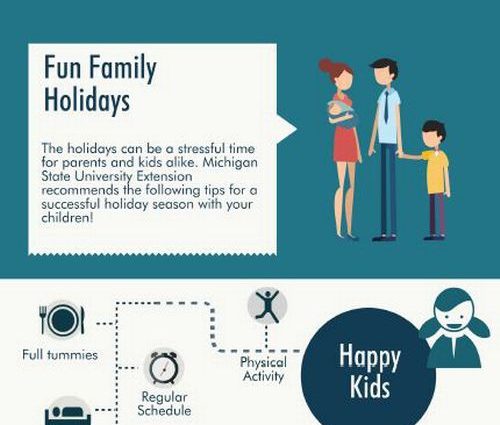Holidays are a hot time in all respects. Sometimes it is on these days that conflicts escalate, and if this happens between parents, children suffer. How to negotiate with a spouse or former partner and keep the peace for everyone, advises clinical psychologist Azmaira Maker.
Oddly enough, holidays and vacations can be an additional stress factor for children and parents, especially if the latter are divorced. Numerous trips, family gatherings, financial issues, schoolwork for the holidays, and household chores can become entangled and lead to conflicts. Clinical psychologist and child and family specialist Azmaira Maker explains what to consider to make New Year’s Eve enjoyable for both parents and children.
The first Monday after the holidays is known as “divorce day”, while January is known as “divorce month” in both the US and the UK. This month is marked by a record number of couples filing for divorce. Stress is largely to blame for this — from the holidays themselves and the decisions that you have to make every day. Trigger topics can unbalance the family system, lead to serious conflicts and resentment, which in turn can push thoughts of separation.
Therefore, it is very important that parents develop a plan to prevent and overcome difficulties and minimize conflicts as much as possible. This is important for the whole family and will help the child to spend the holidays with pleasure. The expert recommends paying special attention to children who spend time alternately with mom and dad, in the conditions of “competition” of parents in terms of gifts and attention.
If the parents are divorced, there is no need to force the child to choose with whom he wants to spend the holidays more.
Azmaira Maker provides guidance that can help adults focus on the positives, compromises, and healthy conflict resolution for children.
- Whether the parents are divorced or married, they can ask their children what matters most to them over the holidays, and have the answer written down and read every day as an important reminder of what children are looking forward to this holiday season.
- Parents should ask each other what is important for each of them these days. These answers should also be written down and reread every day.
- If mother and father do not agree in religious, spiritual or cultural views, they should respect each other’s needs and wishes. Various celebration options teach children tolerance, respect and acceptance of the diversity of life.
- If there is a conflict between parents over finances, the expert recommends discussing the budget before the holidays so that quarrels can be prevented in the future.
- If the parents are divorced, there is no need to force the child to choose with whom he wants to spend the holidays more. It is important to create a fair, simple and consistent travel system during the holidays.
The holidays can get especially tricky if there’s a power struggle between parents.
- Every parent needs to learn how to be a compassionate and supportive listener to help ease tension and reduce the chance of conflict over the holidays. An attempt to understand the needs and wishes of a partner, even an ex, allows you to find solutions that are most favorable for children and both parents.
- Brothers and sisters should stay together during the holidays. The connection between siblings is extremely important: in adulthood, a brother or sister can become a support in difficult situations. Vacations and holidays spent together are an important contribution to the treasury of their common childhood memories.
- If something goes wrong, it is important not to look for someone to blame. Sometimes children become witnesses of parents blaming each other for divorce or family problems. This puts the child in a dead end and can cause negative emotions — anger, guilt and confusion, making the holidays unpleasant and hard days.
- Adults often think about how best to spend the holidays. The discrepancy with each other regarding the plans should not become a reason for the next conflicts. “If the partner’s proposal does not harm the child, but simply differs from yours, try not to offend or humiliate him — look for compromises,” the family psychologist suggests. “Parents should maintain a neutral position and act jointly and harmoniously with regard to children.” This will allow children to feel love and affection for both parents even after a divorce.
- Marriage, divorce, and parenting is tricky territory, but the more compromises and flexibility parents have, the more likely children are to grow up happily and truly enjoy the holidays.
During vacations and holidays, parents face difficult situations. The holidays can become especially difficult and painful if power struggles and competition arise between parents. If parents living together or apart can apply expert advice to minimize conflict and prevent emotional tug-of-war, children will truly enjoy joyful and peaceful days.
About the author: Azmaira Maker is a clinical psychologist specializing in children and families.










